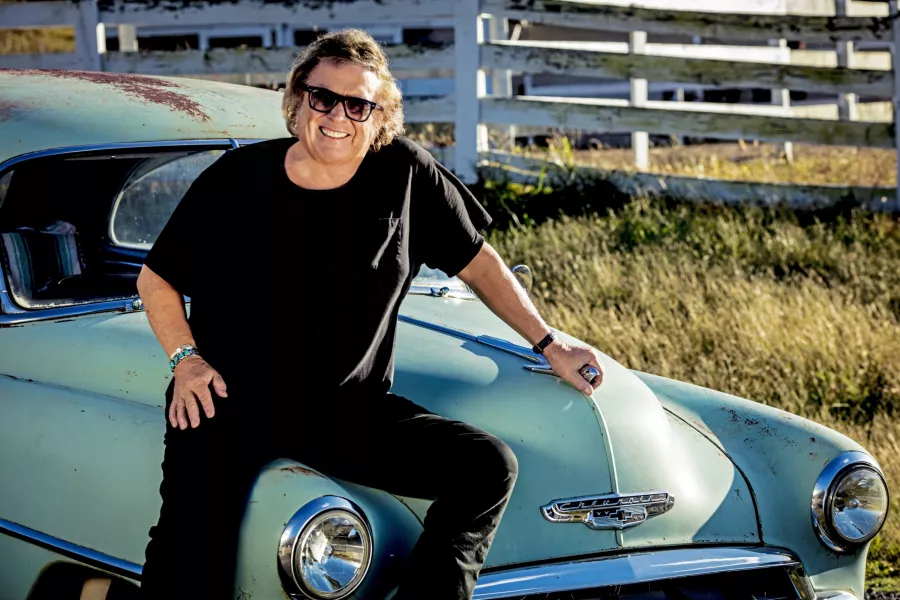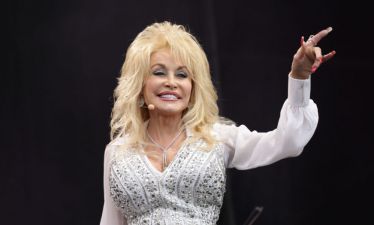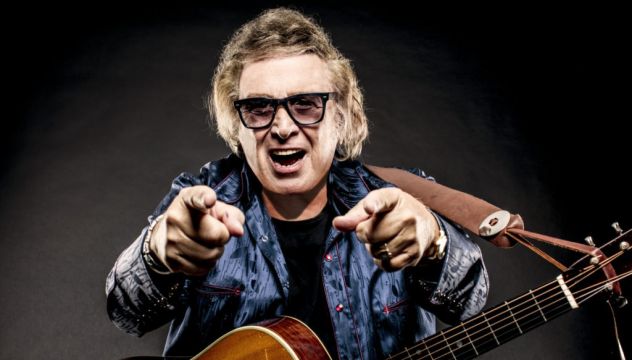Five decades after its release, Don McLean’s American Pie remains inescapable.
The sweeping epic about politics, youth and rock and roll across the Atlantic has, in just the last few years, soundtracked important moments in TV series Stranger Things and Hollywood blockbuster Black Widow, and become boxer Tyson Fury’s victory tune.
Despite its very specific cultural references, it remains ubiquitous. “It’s used in a million different ways because it is non-specific – because it is eternal in that way,” the New York State-born troubadour says over the phone of the 1971 song.
“I did not write something about a specific time. Bob Dylan wrote The Lonesome Death of Hattie Carroll. That’s a wonderful story. It’s a beautiful biographical piece. He wrote about Rubin ‘Hurricane’ Carter, the boxer, and so on and so forth. And I’ve written about Van Gogh. And I’ve written about George Reeves. But this is a different thing. It’s the soul of the country. And the soul has never changed.”
McLean, known to fans as the American Troubadour or King of the Trail, is marking the song and accompanying album’s 50th anniversary with a world tour (including a clutch of UK dates), a retrospective documentary and a stage show in the works.
Since the turn of the millennium, the 76-year-old has remained largely out of the spotlight, despite playing regularly to faithful fans. But the milestone has prompted many to look again at his legacy, leading to McLean in August being given a star on the Hollywood Walk of Fame.
He tells me the day was especially poignant given his life-long obsession with cowboy Western movie stars such as Ken Maynard, Buck Jones and William Boyd, many of who have their own stars on the trail.
“That was certainly a high point in my career,” he recalls excitedly. “And I’ve had a few nice things happen to me in my life – lots of them actually. But this is something that was really particularly wonderful for me because I’m a music and film aficionado. So there were all sorts of names of obscure actors and directors and singers too on that Walk of Fame that I was very proud to be a part of.”

In conversation, McLean is prone to grand, sweeping statements about music and art. This talent is also present in his own music and such grand, sweeping statements form the centrepiece of American Pie. Take for instance the much-quoted lyric: “The three men I admire most / The Father, Son and the Holy Ghost / They caught the last train for the coast.”
His predilection also extends to tales of his youth in New Rochelle, New York State. “My mother always said to me: ‘Donnie, I didn’t raise you, you raised yourself’. I had my own way of doing everything. And I was by myself most of the time.”
After a pause, he adds: “I realised the one thing that mattered to me more than singing, more than writing songs, more than being Don McLean – anything – was making records and albums. So I developed that really very young and it was really independent of everybody I knew. Nobody was in my world at all. Everybody else was basically white kids who were going to grow up to be working stiffs and good pillars of the community and church-goers and all that stuff. I wasn’t any of that. I didn’t want any of that.”
That yearning eventually led to his second studio album, American Pie, being released in October 1971. It was a huge success but the title track – inspired by the plane crash death of rock and roll great Buddy Holly – went stratospheric, reaching number one in the US and many other countries around the world including Australia, Canada and New Zealand.
“If you write about specific things in a universal way then you have created something that’s universal and can last forever,” he says. “If you write about things in a topical way, in a way that is particularly pointing out a specific time then that particular thing is going to fade.”

He compares American Pie to Gone With The Wind, the enduringly popular 1939 American romance set against the backdrop of the US Civil War. “It’s really not about the Civil War,” he tells me. “It’s about Rhett Butler and Scarlett O’Hara. It’s about their love affair and their inability to connect. How much he loved her and she loves him, but they could never really let each other know that they really loved each other. There was always disconnect, ships passing in the night, this kind of thing. That’s the story.”
According to McLean, a song is simply a vehicle. “I’m telling an epic tale of rock and roll and politics and people’s rights – people’s demands,” he declares. “People in the street wanting things.”
After a long 18 months without live performance, McLean is back on the road playing the occasional show. Still, his forthcoming world tour can not come quick enough. “It’s not the same as traveling and singing, which I have done since 1968,” he says. “It’s part of my DNA, I guess you might say, and I definitely feel it physically.”

Not all the music greats of the 60s and 70s continue to perform today and McLean sees himself as part of a select group with a responsibility. “As I get older,” he begins. “I can sing well and I have a lot of songs that people remember and people know and love. I’m from another time period and I like to go out there and show those young people how it’s done – show them how it sounds when it’s right. I’m sure that is what Paul McCartney does. It is certainly what The Rolling Stones still do. We still hold a torch of some sort, which is valuable to people and they love it. They really do.”
After a dramatic pause, he adds: “I intend to die on stage. I have nothing else better to do.”
Tickets for Don McLean’s 50th Anniversary of American Pie 2022 Tour are available online. More information at donmclean.com.







